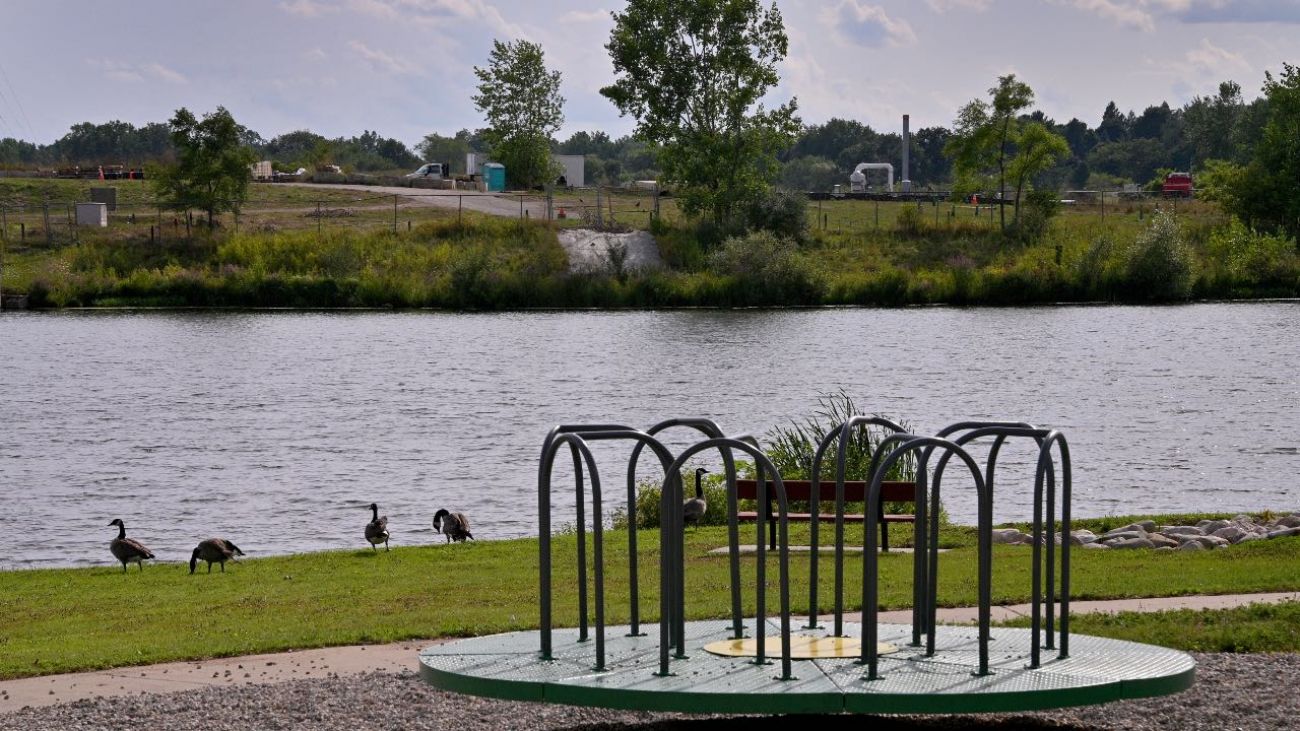Three Michigan Superfund sites among backlog of unfunded polluted sites

Three polluted sites in Michigan have Superfund projects that are idle due to a lack of funding, according to an Environmental Protection Agency list released late last month.
The sites in St. Clair Shores in Macomb County, St. Louis in mid-Michigan and Mancelona Township in northern Michigan are in good company: 31 other Superfund sites nationwide have similarly been ground to a halt, marking the largest buildup of unfunded sites in 15 years.
“When EPA funds new construction projects, it prioritizes those sites that present the greatest risk to human health and the environment,” EPA regional spokesman Jeff Kelley told Bridge Magazine in an email. “The agency maintains the authority to respond to and fund emergencies at these sites if there is an imminent threat to human health and the environment.”
- Bridge Magazine special report: Poisoned Michigan
EPA can’t estimate when funding may be made available for the projects.
The Superfund program, intended to fund cleanup at toxic sites that have no clear responsible party that can pay for it, was originally funded by taxes on petroleum and chemical companies and other corporate fees. But since those taxes expired in 1995, the program has been funded primarily by taxpayers.
In St. Louis, a town of less than 10,000 in Gratiot County, one of multiple Superfund sites left behind by Velsicol Chemical Corp. stands idle due to lack of funding. Local EPA workers have completed preparations to hook up nine homes to the area drinking water system as a preventative measure and to prepare the site to treat contaminated soil and water.
Jim Hall, chairman of an EPA-affiliated local citizens group that monitors cleanup at the former Velsicol site, told Bridge the site isn’t presenting any danger to locals now, but that he looks forward to an eventual end to the remediation that’s been going on in the area since the early 1980s.
“Hopefully they will fund it. They’ve already dumped how much money into St. Louis?” he said, referring to the more than $150 million of Superfund money already spent at the sites.
“It would be my assumption that they would want to finish what they started.”
Related articles:
- Poisoned Michigan: How weak laws and ignored history enabled PFAS crisis
- In a Michigan town with a toxic legacy, residents fought for decades to heal
- Michigan’s PFAS cleanup costs are mounting. Taxpayers may get stuck with the tab.
- Michigan found PFAS in Oscoda in 2010. There’s still no plan to clean it up.
- Letter suggests Bill Schuette shrugged off request to sue 3M over PFAS
- Graphic photos vivid reminders of horror of Michigan PBB chemical crisis
In St. Clair Shores’ 10-Mile Drain site, a PCB plume from a nearby parking lot leaked into the storm sewer discharging into residential canals that used to be used for swimming, fishing and boating access to Lake St. Clair. PCB has also been found in yards. Residents have reported concerns of property value loss and frustrations over losing access to the water. EPA can’t remediate until funding is available.
And in Mancelona Township, a small town near the tip of Michigan’s lower peninsula, an ironworks facility dumped hazardous waste into a pond for more than 60 years, contaminating the groundwater. The water was deemed safe to drink in 2009, but EPA plans to excavate more than 100,000 tons of remaining contaminated soil and expand the existing treatment system. That project has remained unfunded for two years.
“Cleaning up Superfund sites has been a top priority of this administration,” Kelley said.
“Under President Trump’s leadership, America has been able to delete more contaminated Superfund sites off the National Priorities List (NPL) in his first three years than the entire Obama first term,” he said, though the Associated Press noted that deletions from the list usually reflect work done over decades.
The Trump administration has requested major cuts to EPA’s overall budget and smaller cuts to Superfund funding every year, but final funding has remained relatively steady for the department over the last several years.
Kelley, the EPA spokesman, said that with the exception of two years, EPA has not been given enough money to start all Superfund construction projects that are ready to begin since 1996.
Michigan Environment Watch
Michigan Environment Watch examines how public policy, industry, and other factors interact with the state’s trove of natural resources.
- See full coverage
- Subscribe
- Share tips and questions with Bridge environment reporter Kelly House
Michigan Environment Watch is made possible by generous financial support from:
Our generous Environment Watch underwriters encourage Bridge Michigan readers to also support civic journalism by becoming Bridge members. Please consider joining today.
See what new members are saying about why they donated to Bridge Michigan:
- “In order for this information to be accurate and unbiased it must be underwritten by its readers, not by special interests.” - Larry S.
- “Not many other media sources report on the topics Bridge does.” - Susan B.
- “Your journalism is outstanding and rare these days.” - Mark S.
If you want to ensure the future of nonpartisan, nonprofit Michigan journalism, please become a member today. You, too, will be asked why you donated and maybe we'll feature your quote next time!



